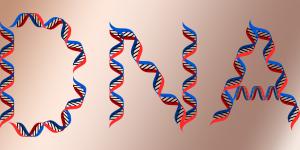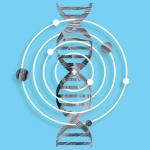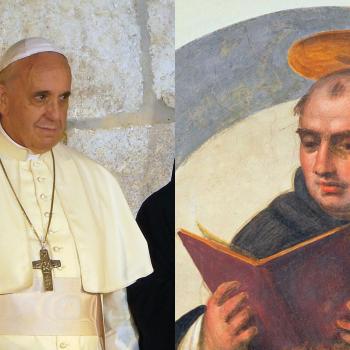As I’ve noted before, companies like 23andMe or AncestryDNA use probability not precise science to determine where your DNA is from. This is why different companies might give you different results. Despite this, in their promotions, they seem to promote its certainty. Recently an article on STAT pointed out a further issue about the psychological stress of changing DNA Ancestry. Companies change their charts as they get a larger index of samples of people they know are from different places.
Stories of Changing DNA Ancestry
The STAT article contains multiple stories but the opening story is emblematic of the others.
23andMe caused Leonard Kim not one identity crisis but two.
The first came in 2016, when Kim, who was raised believing he was 100% Korean, took the company’s DNA ancestry test and learned he was almost half Japanese. Then, earlier this month, he was out for drinks with his wife and some friends near his Los Angeles home when someone questioned his Japanese ancestry.
So Kim, 34, took out his phone and consulted the 23andMe website. That’s when he discovered his ethnic identity had changed. The site that once told him he was about 40% Japanese now pegged that figure at 5%. He was, in an instant, fully Korean again.
Korea’s history with Japan is one stained with colonization, cultural oppression, and bloodshed. It took months of denial and soul-searching for Kim to accept a previously unknown Japanese lineage. Learning it was all a waste: [it] felt like existential whiplash.
You can read the other stories in the article if you want.
Psychological Problems
STAT goes on to quote a genealogist about how these tests can be deceptive.
The tests offer an educated scientific guess, but the way they’re marketed could easily convince customers that they amount to conclusive proof of identity, said Debbie Kennett, a genealogist who has written at length about the genetics of ancestry.
One 23andMe commercial follows a tourist on what appears to be a personal genetic sojourn, trekking around the globe as her DNA relation to each region — 29% East Asian, 3% Scandinavian — flashes on the screen. […]
“I think the way the tests are marketed is misleading, because people are led to believe they’ll take a test and find out who they are or where they’re from, and that is not the way to view these results,” Kennett said.
My Own Ancestry
Kennett has a point. All my ancestry is from Garmany or the Brittish Isles as far as I know. However, my family has been in Canada so long that they refer to themselves as Canadian. Furthermore, what would different genetics prove?
Let’s take a hypothetical but really possibility. If I did a test and found out I was 15% Scandinavian, what would that change? My suspicion would be that this came from Viking raiders on the British Isles a few centuries ago. I’d still have several hundred years of Scottish or Irish culture. Those Viking ancestors are several times further back than the invention of Guinness 260 years ago, yet Guinness is considered a top sign of Irishness worldwide. Or even if it was more recent, how does that compare to the cultural and live reality of my family. We’re a Canadian family with German, Scottish and Irish roots. DNA doesn’t define what culture I come from.
On the other hand, if someone is not as familiar with their family history, maybe such a test might provide some groundedness. However, the constant variability of such results makes it hard to hold onto that. If a test can say you are 58% percent Korean one day and 95% Korean a few months later, can that be a psychological solid ground for identity? I doubt it.
Catholic Moral Principles
As always, several related issues arise with DNA testing.
The first issue is privacy. As these companies are consumer not medical, they are not regulated by HIPAA or other medical health privacy laws. This creates a danger of misuse. We do have a right not to have our DNA sequence posted to the public. On the other hand, moral issues don’t arise doing tests for genetic predispositions with your doctor if kept private. These companies have all your genetic information on their computers and it is not clear what degree of data protection they have. When people can hack credit card lists, I’m wondering if they can hack this too.
Also, we have an issue of how racial divisions are drawn in these tests. These tests often use current country borders but those are somewhat artificial as race is much more a gradation. This is impossible to accurately grasp through DNA Ancestry. Plus, even centuries ago, people moved around and don’t always marry someone from their village. Thus such tests can’t account for relatives who were traders and passed on the variations from far away.
Finally, related to racial divisions, we need to consider how DNA ancestry happens by percentages. We are each 50% mom’s genes and 50% dad’s genes, but we can’t know what percent of grandma and grandpa’s genes we have.We are very unlikely to get 100% from one grandparent and 0% from another, but a split of 2/3 & 1/3 wouldn’t be unthinkable. If that split happens twice in a row, my DNA could be anywhere from 1/18 to 4/18 from one great-grandparent. When we start going back many generations such variation shows that our DNA is not showing what percent of our ancestors came from a place but what percent of the DNA passed on to us came from there. This can be deceptive.
I’m not for banning this consumer genetic testing, I just think people should give more consideration before doing it than most seem to.
If you like more like this, please support me via Patreon.
















